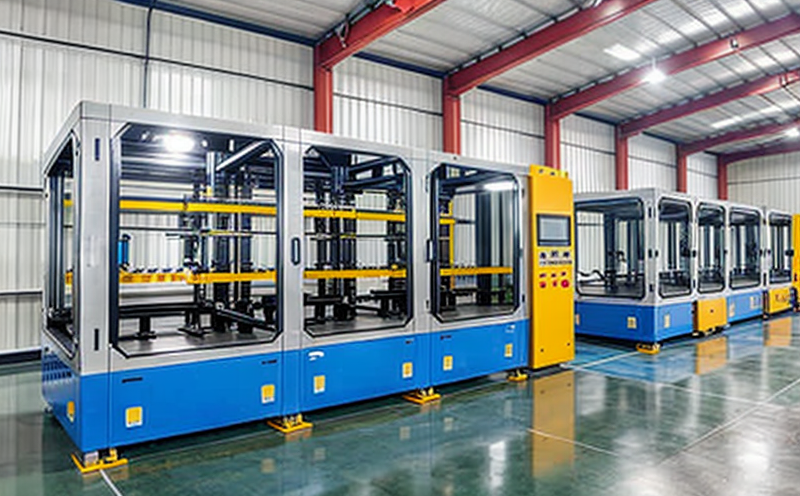Role of mechanical strength testing in food packaging durability
The Crucial Role of Mechanical Strength Testing in Ensuring Food Packaging Durability A Laboratory Service Provided by Eurolab
In todays fast-paced and highly competitive food industry, ensuring the durability of packaging materials is no longer a mere nicety it has become an absolute necessity. With the rise of e-commerce, shifting consumer preferences, and increasing regulations, businesses can ill afford to compromise on the quality of their packaging. One essential laboratory service that plays a vital role in guaranteeing the integrity of food packaging is mechanical strength testing. In this article, we will delve into the world of mechanical strength testing, exploring its significance, advantages, and benefits for businesses.
What is Mechanical Strength Testing?
Mechanical strength testing, also known as material testing or mechanical property testing, evaluates the physical properties of materials subjected to various forms of stress, such as compression, tension, and flexure. This type of testing helps determine a materials ability to withstand external forces without failing or deforming excessively. In the context of food packaging, mechanical strength testing is crucial for assessing the durability of packaging materials under real-world conditions.
Why Is Mechanical Strength Testing Essential for Food Packaging Durability?
Food businesses rely heavily on their packaging to protect products from damage during transportation, storage, and handling. A single failure or breach in packaging integrity can lead to product contamination, spoilage, and ultimately, financial losses. Here are some compelling reasons why mechanical strength testing is a vital component of food packaging durability
Prevents Packaging Failures Mechanical strength testing helps identify potential weaknesses in packaging materials, enabling businesses to modify their designs or switch to more robust alternatives.
Ensures Compliance with Regulations Food manufacturers must adhere to strict regulations regarding packaging safety and performance. Regular mechanical strength testing ensures that packaging meets these standards, minimizing the risk of product tampering and contamination.
Enhances Brand Reputation By prioritizing packaging durability through mechanical strength testing, businesses can build trust with consumers, protecting their reputation and loyalty.
Reduces Waste and Costs Identifying and correcting packaging flaws through mechanical strength testing helps minimize waste and reduces costs associated with rework, replacement, or disposal of defective packaging.
Key Benefits of Mechanical Strength Testing in Food Packaging Durability
The advantages of incorporating mechanical strength testing into your quality control process are numerous
Improved Material Selection By evaluating the performance of various materials under controlled conditions, businesses can select the most suitable options for their packaging needs.
Increased Product Shelf Life Enhanced packaging durability through mechanical strength testing reduces the risk of product spoilage and extends shelf life.
Cost Savings Regular testing helps identify potential issues before they lead to costly rework or replacement, minimizing waste and expenses.
Enhanced Customer Satisfaction By ensuring that packaging meets regulatory requirements and is designed for optimal performance, businesses can increase customer satisfaction and loyalty.
QA Section Frequently Asked Questions About Mechanical Strength Testing in Food Packaging Durability
Here are some common questions about mechanical strength testing
What types of tests are typically conducted during mechanical strength testing?
Tensile strength (tension) test
Compressive strength (compression) test
Flexural strength (bending) test
Impact resistance test
How often should mechanical strength testing be performed on food packaging materials?
Regular intervals, depending on production volume and material type
After changes in production process or raw materials
When introducing new products or packaging designs
Can mechanical strength testing be performed in-house, or is it necessary to outsource this service?
Both options are viable, but outsourcing to a specialized laboratory like Eurolab ensures accuracy and objectivity.
Conclusion
In todays food industry, ensuring the durability of packaging materials through mechanical strength testing is no longer an option it has become an essential component of maintaining brand reputation, complying with regulations, and reducing waste. By incorporating this laboratory service into their quality control process, businesses can safeguard their products, customers, and bottom line. At Eurolab, our team of experts is dedicated to providing top-notch mechanical strength testing services that help food manufacturers like you stay ahead in the market.
Visit us at eurolab.com to learn more about our laboratory services and solutions for food packaging durability(http//eurolab.com)
---
For any additional information or clarifications on the topics discussed above, feel free to contact Eurolab.




